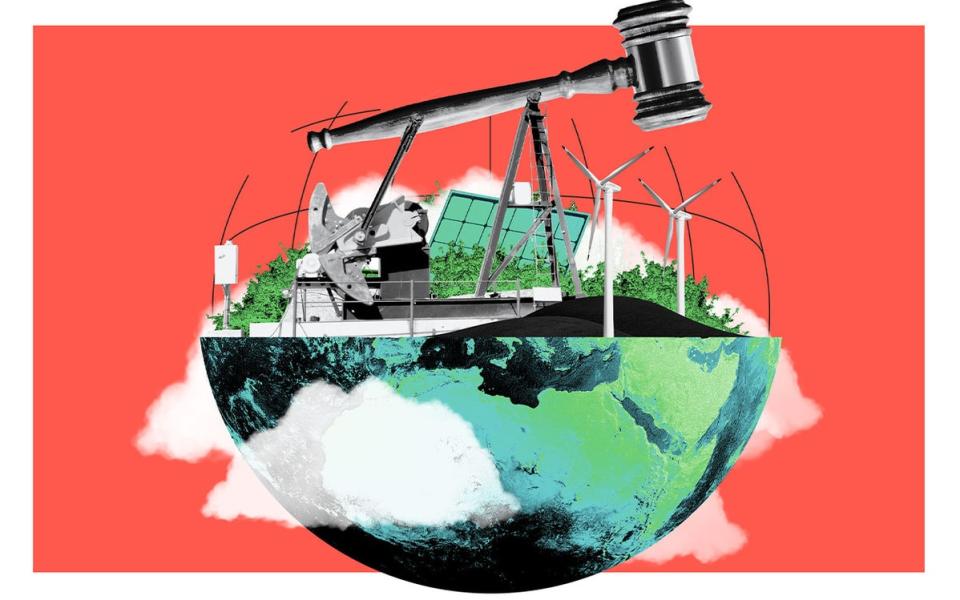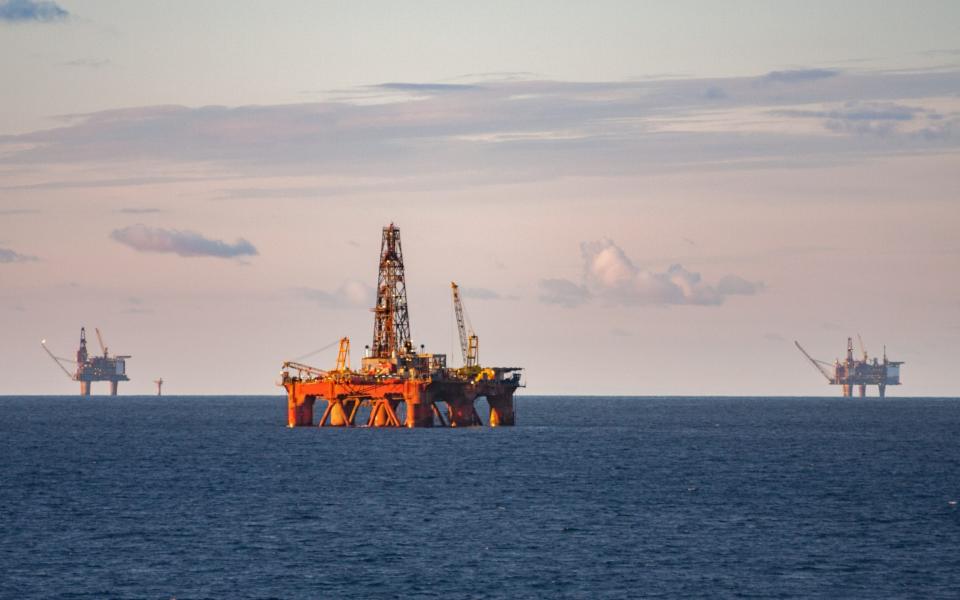Climate goals caught in a litigation trap

It was hailed as a “stunning victory” for climate change activists. A Dutch court last month ruled that Shell would have to cut its CO2 emissions by 45pc by 2030 compared to 2019 levels.
It was the first time a large company had been legally obliged to comply with the Paris Climate Agreement, marking what some said was a historic moment in the fight against global warming.
But this was just one victory in a wider political war. Behind the scenes a far more brutal battle has been playing out between politicians and corporations – one that threatens to derail climate targets all together.
Energy giants are increasingly using an obscure legal system to bypass domestic courts and sue governments for billions in earnings they deem to have been unfairly lost as a result of government action on climate change.
German energy giant RWE, for instance, is suing the Netherlands for €1.4bn (£1.2bn) for its plans to phase out coal. Uniper has filed a similar claim, while UK company Rockhopper is suing Italy over a ban on new oil and gas drilling near the country’s coast.
‘Chilling effect’
“They’re aiming at a chilling effect so the target is not just the Netherlands government, they are trying to send a warning signal to other governments,” says Jean Blaylock, a policy manager at campaign group Global Justice Now.
The legal rights to sue are written into thousands of investment treaties worldwide, including the Energy Charter Treaty (ECT), which allows companies to sue any of the 53 signatory countries – including the UK – if they feel they have been treated unfairly.

Politicians, keen to secure post-Brexit trade deals, are also continuing to consider them as part of free trade agreements.
The British trade minister recently confirmed that the legal mechanism, known as investor-state dispute settlement (ISDS), is being discussed in the final negotiations for the Australia-UK free trade agreement.
Proponents of ISDS say it encourages foreign investment because it stops governments from taking action that companies deem to be unfair.
But its impact could be devastating, experts warn. Blaylock says the ISDS is an “appallingly biased system” that gives large corporations a powerful tool to challenge decisions made following democratic processes. “It needs to be understood as completely disreputable for a company to use it.”
The UK is extremely vulnerable to this kind of legal action because it has fossil fuel infrastructure worth more than £120bn, according to an analysis by Investigate Europe.
Lawsuits expose gulf between polluters’ words and actions
In November, the UK will host the COP26 climate talks in Glasgow, where it is hoped that leaders will devise a global plan to drive greenhouse gas emissions to an average of zero to stabilise the climate.
“Everything good you envision coming out of [COP26] is in jeopardy if you don’t take proactive steps to remove this litigation trap that has been set in treaties that hardly anyone has ever heard of,” says Gus Van Harten, law professor at York University, Toronto.
The ISDS system was designed to protect corporations that invested in countries with uncertain legal situations from expropriation of assets and other mistreatment.
Its scope, however, is so broad that companies now use it to sue for compensation if government policy might affect current or future earnings, and has been used to challenge decisions where courts have ruled in favour of climate campaigners.
There is no cap on the damages that tribunals can award – which totalled $50bn (£35bn) in one case – and a state’s goods and assets abroad can be seized in payment.
Countries cannot use the system to sue companies, nor is it open to domestic companies. In practice, the only companies that can afford to bring cases are deep-pocketed multinational corporations and investors.
The lawsuits shine a light on the apparent gulf between companies’ words and actions on climate change. RWE, for example, has committed to becoming carbon neutral by 2040 and trumpets its €5bn (£4bn) investment in wind and solar power by 2022. But it remains Europe’s largest emitter of carbon dioxide and does not plan to stop burning lignite, the most polluting grade of coal, until 2038.
While the Netherlands can afford a costly lawsuit, Blaylock says developing countries might delay taking climate action for fear of being landed with legal bills they cannot pay.
Even if the companies lose, she claims these cases could slow down action on climate change with devastating effects.
“In the context of the climate crisis, we’ve already wasted so much time. If it ends up being delayed for just another five years, we can’t afford that.”
Climate targets in jeopardy
Adriaan van der Maarel, a spokesman for RWE, said: “We are not against the phase-out of coal but we are against the fact that there is no compensation in this law.”
He says RWE is not trying to influence other governments’ actions on climate change.
Uniper says its case is focused on the legality of the Netherlands phasing out coal without compensation. It says it is not seeking a specific level of compensation, although the coal plant in question cost €1.6bn.
There have been attempts to reform the ECT but progress is slow and France and Spain, along with a number of MEPs from across the EU, have suggested withdrawing from the treaty, which they say poses a serious threat to their climate targets.
The UK’s Department for Business, Energy and Industrial Strategy says it supports efforts to modernise the ECT but would not be drawn on what that entails. A spokesman says: “The UK supports the work of the Energy Charter Treaty in promoting investment in the energy sector and fostering international energy cooperation, including in the development of renewable energy worldwide.”
As campaigners increasingly use the courts to push for a tougher response to climate change, governments now face legal action on two fronts: from companies, if they bring in policies to tackle climate change that damage earnings; and from campaigners, if policies are not considered sufficient to meet their commitments to meet the Paris climate agreement.
Van Harten says that is another reason countries should remove themselves from treaties that include ISDS, but notes that not all forms of litigation are created equal.
“The tools available to people trying to protect their future by suing for climate action are vastly weaker than the tools available to fossil fuel companies.”
The imbalance risks undermining the world’s environmental efforts and setting countries back decades on their climate goals.

 Yahoo Finance
Yahoo Finance 